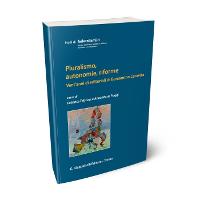
Log in or Create account
FOCUS - Human Rights N. 1 - 22/09/2021
Il diritto al silenzio nell’intreccio tra diritto nazionale, sovranazionale e internazionale: il caso D.B. c. CONSOB
Abstract [It]: La vicenda relativa al procedimento sanzionatorio di D.B. dinanzi alla CONSOB ha provocato una serie di giudizi che hanno chiamato in causa giudici comuni italiani, la Corte costituzionale e la Corte di giustizia dell’UE, i quali hanno altresì “evocato” la giurisprudenza della Corte europea dei diritti dell’uomo. Questo articolato percorso giudiziario rappresenta un ulteriore esempio di “dialogo” tra le Corti, che ha avuto ad oggetto uno specifico diritto, il diritto al silenzio. La controversia su tale diritto, tuttavia, non ha riguardato il suo – ovvio – riconoscimento in un giudizio penale, bensì quello in un procedimento amministrativo il cui esito sanzionatorio può essere tanto gravoso da farlo rientrare nella c.d. matière pénale. All’esito di tale vicenda, il diritto al silenzio è stato riconosciuto anche nei procedimenti sanzionatori dinanzi alla CONSOB, ma le decisioni della Corte costituzionale e della Corte di giustizia dell’UE sembrano idonee a garantire ulteriori sviluppi, nel senso di un più ampio riconoscimento di tale diritto al di là dei soli giudizi propriamente penali.
Abstract [En]: The affair relating to DB’s sanctioning proceedings before the CONSOB has caused some trials involved Italian judges, the Italian Constitutional Court and the Court of Justice of the European Union, with references to the jurisprudence of the European Court of Human Rights. This intricate judicial affair represents an example of “dialogue” between the Courts, whose issue is a specific right, the right to be silent. The dispute over this right, however, did not concern its recognition in a criminal trial (which is obvious) but its recognition in an administrative procedure whose sanctioning outcome can be so severe as to make it fall within the so-called matière pénale. Because of this affair, the right to be silent was recognized in the sanctioning proceedings before the CONSOB, but the rulings of the Constitutional Court and the Court of Justice of the European Union could have further developments, namely an effective recognition of this right also in administrative and tax proceedings.
Parole chiave: diritto al silenzio; CONSOB; Corte costituzionale; Corte di Giustizia UE; Corte EDU
Keywords: right to silence; CONSOB; Constitutional Court; EU Court of Justice; ECHR
Sommario: 1. Il diritto al silenzio: una breve ma necessaria premessa. 2. La CONSOB e l’applicazione del Testo unico delle disposizioni in materia di intermediazione finanziaria. 3. La Corte costituzionale apre il dialogo con la CGUE: l’ordinanza 117/2019. 4. La decisione della CGUE: la sentenza DB c. CONSOB. 5. La Corte costituzionale conclude (?) la vicenda: la sentenza 84/2021. 6. L’armonizzazione della tutela del diritto al silenzio e i suoi possibili sviluppi.
NUMERO 22 - ALTRI ARTICOLI
-
ITALIA - DOTTRINA
Considerazioni sui profili funzionali processuali e 'politici' delle ordinanze monitorie di rinvio della Corte costituzionale
ITALIA - DOTTRINAIl caso del finanziamento del 'Teatro Eliseo' al vaglio della Corte costituzionale
ITALIA - DOTTRINAFonti rinnovabili e compensazioni ambientali, ultimo atto
-
ITALIA - DOCUMENTAZIONE
Focus Human Rights
ITALIA - DOTTRINAL'ordinanza prefettizia ex art. 2 TULPS



 Registrati
Registrati Login
Login
 Riforme istituzionali e forma di governo
Riforme istituzionali e forma di governo Lavoro Persona Tecnologia
Lavoro Persona Tecnologia Osservatorio di Diritto sanitario
Osservatorio di Diritto sanitario Osservatorio Trasparenza
Osservatorio Trasparenza Africa
Africa Human Rights
Human Rights America Latina
America Latina Territorio e Istituzioni
Territorio e Istituzioni Storico focus
Storico focus Scarica il Documento integrale
Scarica il Documento integrale STUDI FEDERALISMI
STUDI FEDERALISMI





25/01/2023
14/10/2022
18/05/2022
22/09/2021
28/12/2020
27/07/2020
05/02/2020
04/10/2019
01/05/2019
26/12/2018
29/10/2018
25/06/2018
29/12/2017
28/07/2017
13/03/2017
07/10/2016
17/06/2016
22/01/2016
25/09/2015
03/07/2015
03/04/2015
16/01/2015
24/10/2014
20/06/2014
28/03/2014
20/12/2013
16/09/2013
17/05/2013
15/02/2013